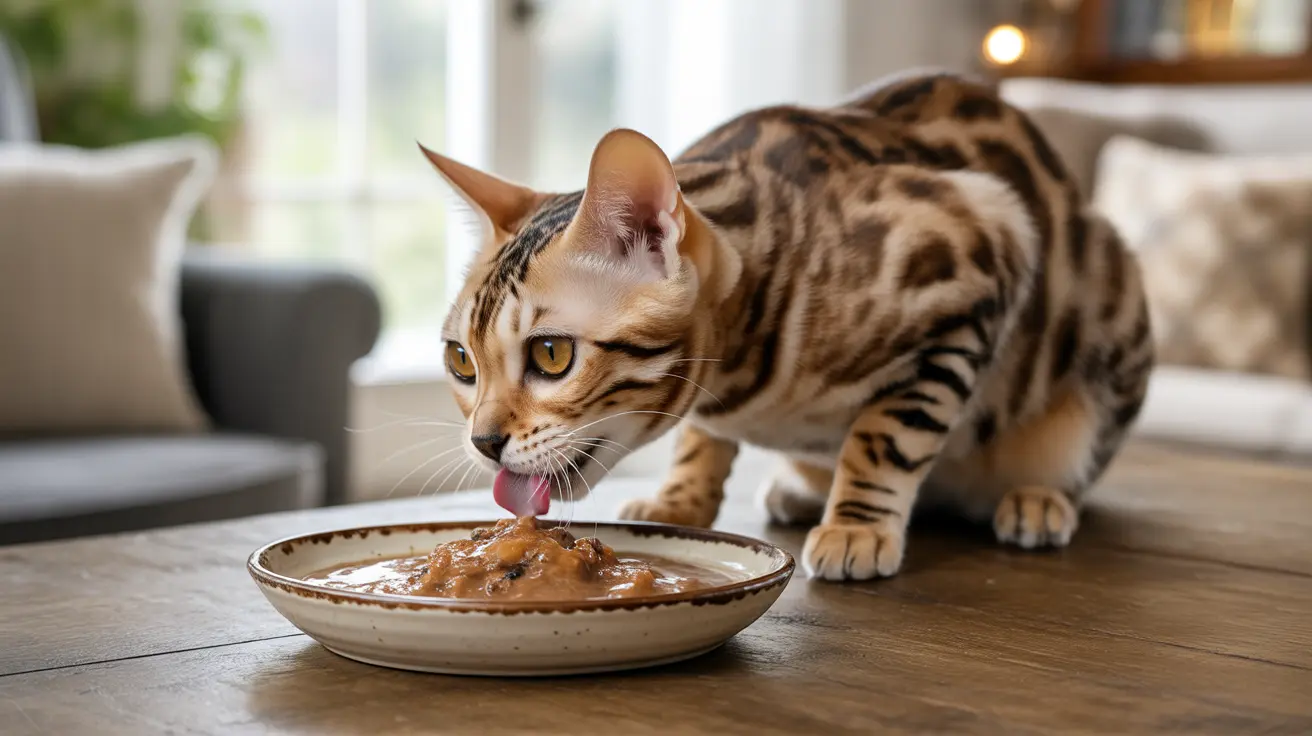If you've ever watched your cat's eyes light up at the sight of gravy, you might wonder about its safety as a treat. While cats are often drawn to the rich, savory taste of gravy, not all types are safe for feline consumption. Understanding which gravies are safe and how to serve them properly is crucial for your cat's health and wellbeing.
Let's explore everything you need to know about feeding gravy to cats, including safe options, potential risks, and how to make cat-friendly alternatives that won't compromise their health.
Understanding Different Types of Gravy for Cats
Not all gravies are created equal when it comes to feline consumption. Cat-specific gravies are specially formulated to be safe and nutritious, while human gravies often contain ingredients that could harm your pet. Commercial cat food gravies typically contain a balanced mixture of meat broths, vitamins, and minerals designed specifically for feline dietary needs.
The Benefits of Cat-Safe Gravy
When chosen correctly, gravy can offer several advantages for cats:
- Increased hydration through moisture content
- Enhanced palatability for picky eaters
- Additional nutrients when properly formulated
- Helpful for administering medications
Potential Risks and Dangerous Ingredients
Common Harmful Components in Human Gravy
Many traditional gravy recipes contain ingredients that can be toxic or harmful to cats:
- Onions and garlic (highly toxic)
- Excessive salt
- Heavy fats and oils
- Dairy products
- Artificial preservatives
- Various spices and seasonings
Safe Gravy Options for Cats
Commercial Cat Gravy Products
The safest option is to use specially formulated cat gravy products that are:
- Specifically designed for feline consumption
- Nutritionally balanced
- Free from harmful ingredients
- Quality-controlled and tested
Making Cat-Safe Gravy at Home
If you prefer homemade options, follow these guidelines:
- Use plain meat broth without seasonings
- Avoid adding thickeners
- Skip all seasonings and spices
- Keep it simple and natural
Guidelines for Feeding Gravy to Cats
When incorporating gravy into your cat's diet, remember:
- Serve in moderation as an occasional treat
- Monitor your cat for any adverse reactions
- Introduce new gravies gradually
- Maintain proper portion control
Frequently Asked Questions
Is it safe to give my cat gravy from human meals?
No, human gravy typically contains ingredients that can be harmful or toxic to cats, including onions, garlic, excessive salt, and spices. It's best to avoid feeding your cat gravy from human meals.
What ingredients in gravy are toxic or harmful to cats?
The most dangerous ingredients include onions, garlic, chives, excessive salt, dairy products, and artificial preservatives. These can cause various health issues ranging from digestive problems to serious toxicity.
Can homemade gravy be made safe for cats, and how?
Yes, you can make cat-safe gravy by using plain, unseasoned meat broth without any additives. Simply boil plain meat in water, strain the liquid, and let it cool. Avoid adding any seasonings, thickeners, or fats.
Why do some cats love gravy and how can it benefit their diet?
Cats are attracted to gravy because of its rich, meaty flavor and aroma. When properly prepared, gravy can help increase hydration and make dry food more appealing to picky eaters.
How often and how much gravy can I feed my cat without risking health issues?
Gravy should only make up about 10% of your cat's daily caloric intake and should be given no more than 2-3 times per week. Always use cat-specific gravy products or homemade versions without harmful ingredients.
Conclusion
While cats can safely consume certain types of gravy, it's crucial to choose the right options and serve them in moderation. Stick to cat-specific commercial gravies or simple, homemade versions without harmful ingredients. When in doubt, always consult with your veterinarian about the best dietary choices for your feline friend.






